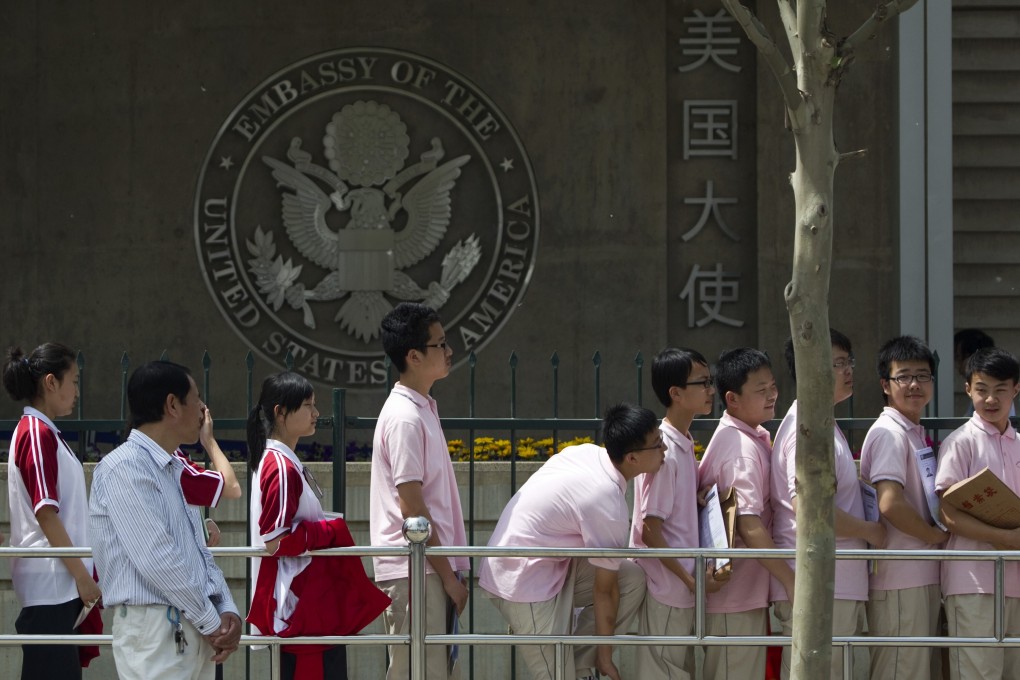Advertisement
Access denied: Chinese students slam ‘spy’ hunt as visa rejections pile up
- At least 500 visas rejected under Trump-era policy to block Beijing from obtaining US technology with possible military uses
- US Embassy in Beijing cites ‘some abuses of the visa process’, as Chinese reports link rejections to seven schools associated with industry and IT ministry
Reading Time:4 minutes
Why you can trust SCMP
5

After a semester online, Wang Ziwei looked forward to meeting classmates returning to campus at Washington University in St Louis, Missouri. But the US revoked his visa on security grounds, the 23-year-old finance student said.
Wang is among at least 500 students who the Chinese government says have been rejected under a policy issued by then-president Donald Trump – to block Beijing from obtaining US technology with possible military uses. Students argue that it is applied too broadly and fume at what they say is an accusation that they are spies.
“The whole thing is nonsense,” Wang said. “What do we finance students have to do with the military?”

01:25
US colleges face US$15 billion hit as Chinese students stay away amid coronavirus pandemic
US colleges face US$15 billion hit as Chinese students stay away amid coronavirus pandemic
The students join companies and individuals whose plans have been disrupted by US-Chinese tension over technology and security, Beijing’s military build-up, the origins of the coronavirus, human rights and conflicting claims to the South China Sea and other territory.
The US policy blocks visas for people affiliated with the ruling Communist Party’s military wing, the People’s Liberation Army, or universities deemed by Washington to be part of military modernisation efforts.
US officials say they believe thousands of Chinese students and researchers participate in programmes that encourage them to transfer medical, computer and other sensitive information to China.
Washington cites Beijing’s strategy of “civil-military fusion,” which it says treats private companies and universities as assets to develop Chinese military technology.
Advertisement